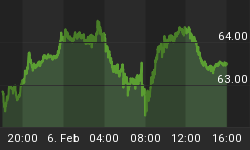
Franklin D. Roosevelt, the 32nd president of the United States said, "In politics, nothing happens by accident. If it happens, you can bet it was planned that way."
Facts
-
The US government spends $1 - $2 Trillion more each year than it collects in revenues. This is not sustainable.
-
The US National Debt increases about 12% per year (last five years) while the GDP (Gross Domestic Product) is hardly changing, or decreasing, if inflation were properly calculated.
-
Current US government expenses for entitlements (Social Security, Medicare, Medicaid, Military Pensions, etc.) plus current expenses for interest on the National Debt exceed current revenues. The government would still go into debt every year, even if it cut 100% of military expenses and 100% of the remaining US government bureaucracy.
-
The Federal Reserve creates $85,000,000,000 per month of new currency from "thin air" and uses that new digital currency to bail out "Too Big To Fail" (TBTF) banks. The famous "Bernanke Helicopter Drop" is dumping billions into the politically connected banks but little onto "main street" USA. In simple terms, the wealthy are bailed out, the poor are given food stamps and welfare, and the middle class pays via taxes and inflationary confiscation of their savings and pensions.
-
All of the above are signs of financial desperation resulting from unsustainable policies.
I repeat,"In politics, nothing happens by accident. If it happens, you can bet it was planned that way."
Follow this logical thought process.
Washington D.C. and Wall Street are filled with highly intelligent people who know that:
-
Unbacked paper money always declines in value to near zero.
-
The government cannot tax businesses and individuals into wealth and prosperity.
-
The government cannot create wealth, prosperity and employment by printing money - debt monetization - QE4-Ever - Inflate or Die.
-
Deficits DO matter.
-
Massive money printing will NOT help the economy long-term, but it WILL CREATE inflation in consumer prices.
-
We cannot get something for nothing.
-
Unsustainable fiscal policies will eventually collapse or fail.
However, our "leaders" in Washington D.C. and on Wall Street pretend they believe the above nonsense about printing money to create wealth and employment, debt increasing without limit, and fiscally unsustainable policies continuing forever. Why? Perhaps there is an ulterior motive!
Implications
-
Although our supposed leaders are presumably highly intelligent, educated, and knowledgeable, they act largely "brain-dead" as they lead the United States down an unsustainable path that guarantees eventual catastrophic financial destruction. Think lemmings and a cliff. Is there an ulterior motive?
-
Bankers, the military, oil companies, military contractors, large corporations, and other special interests have purchased legislation that benefits them while creating huge government expenditures. In addition to entitlements, the result is out-of-control spending. Was this out-of-control spending caused by normal greed, or was there a larger plan - an ulterior motive?
-
I suspect that the real leaders (political and financial elite) have supported and enabled unsustainable policies and practices knowing that a crisis and collapse of some sort must inevitably occur. Why? "Never waste a crisis!" The next financial crisis, like the crisis of 2008, will transfer a massive amount of wealth from the middle class to the political and financial elite and will consolidate more power under government control. "You can bet it was planned that way."
If another crisis is imminent, then consider what the next several years will do to:
-
Your income, your expenses, and your wealth
-
Consumer prices
-
The total National Debt
-
Size of the federal government
Get back to basics! "If it happens (in politics), you can bet it was planned." If intelligent people relentlessly pursue obviously unworkable financial policies down an unsustainable path, there must be an ulterior motive. Will you, as a middle-class American (European, Canadian) benefit from the consequences of that ulterior motive? Probably not!
Are you prepared? Read We Have Been Warned and Something for Nothing.
Counter-party risk could be devastating in the next financial crisis. If "B" owes you money and files for bankruptcy because "A" does not pay "B", then you have counter-party risk that could be very costly. The value of gold and silver is NOT dependent upon a government or corporation paying a debt or fulfilling their promises. Gold and silver have no counter-party risk and will survive the next crisis.
The prices for gold and silver are dependent upon the total money in circulation (more money means higher gold prices), real (nominal rate minus inflation rate) interest rates (lower rates mean higher gold prices), and confidence or lack of confidence in governments and their fiscal policies. I rate gold and silver as healthy and safe investments and the bonds of various sovereign nations as increasingly risky. Would you rather own gold or government bonds from Greece (Portugal, Spain, Italy, United Kingdom, or United States)? Do you own enough gold and silver that you would feel safe in a financial melt-down?
If not, why not?















